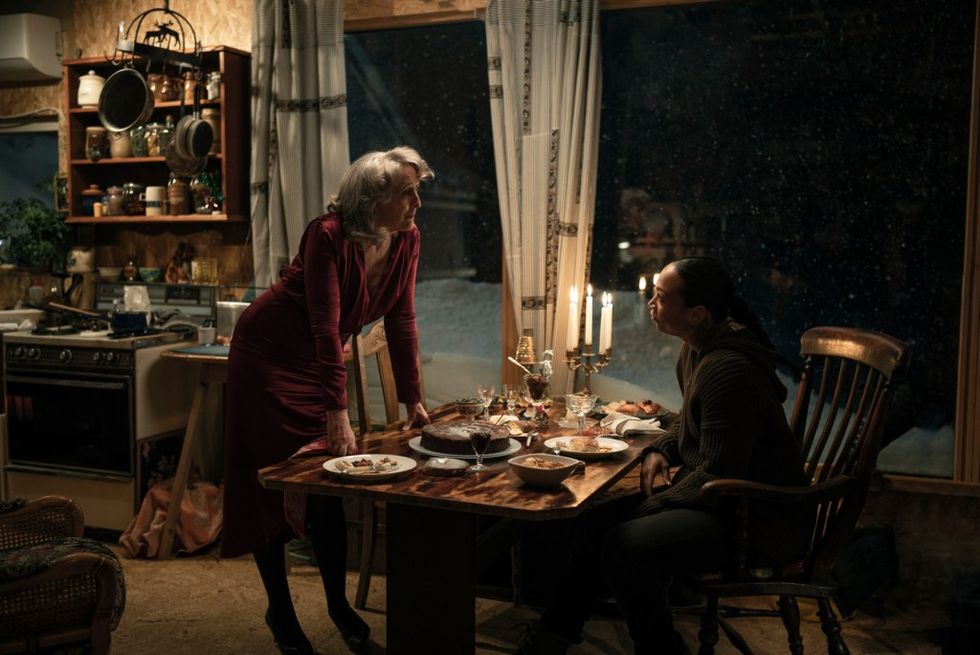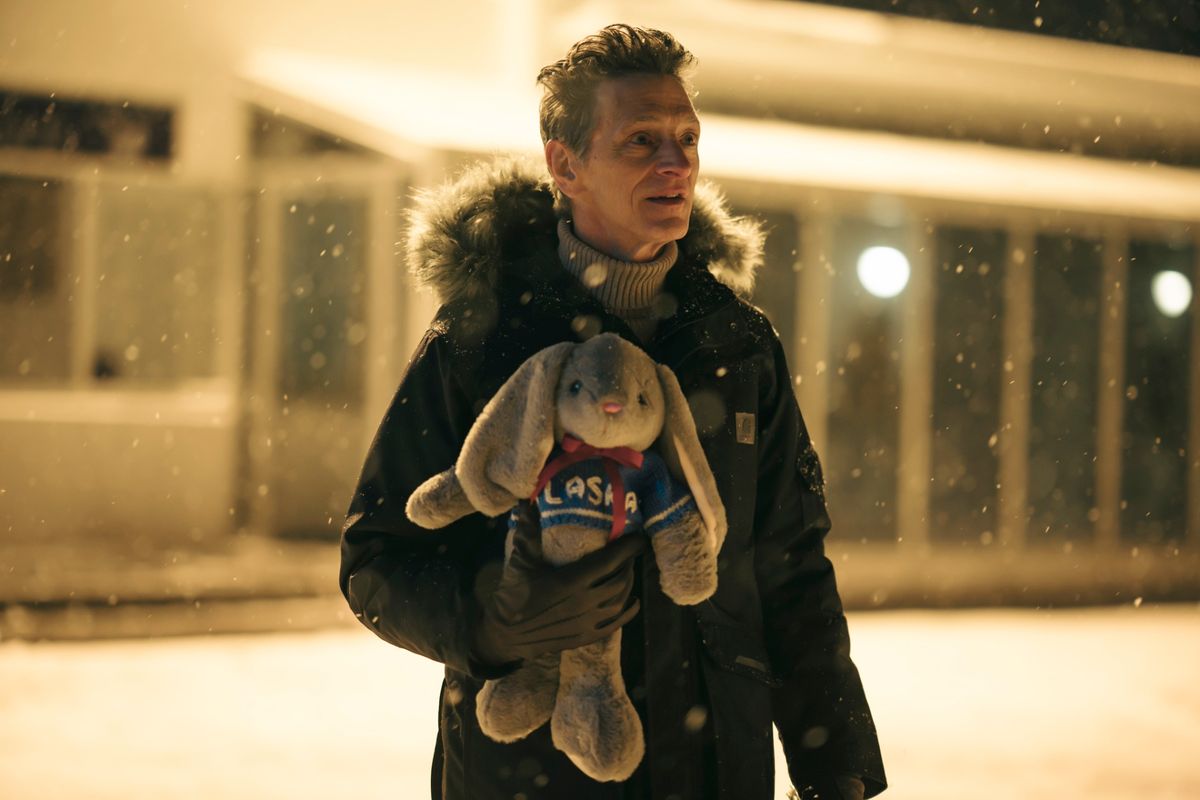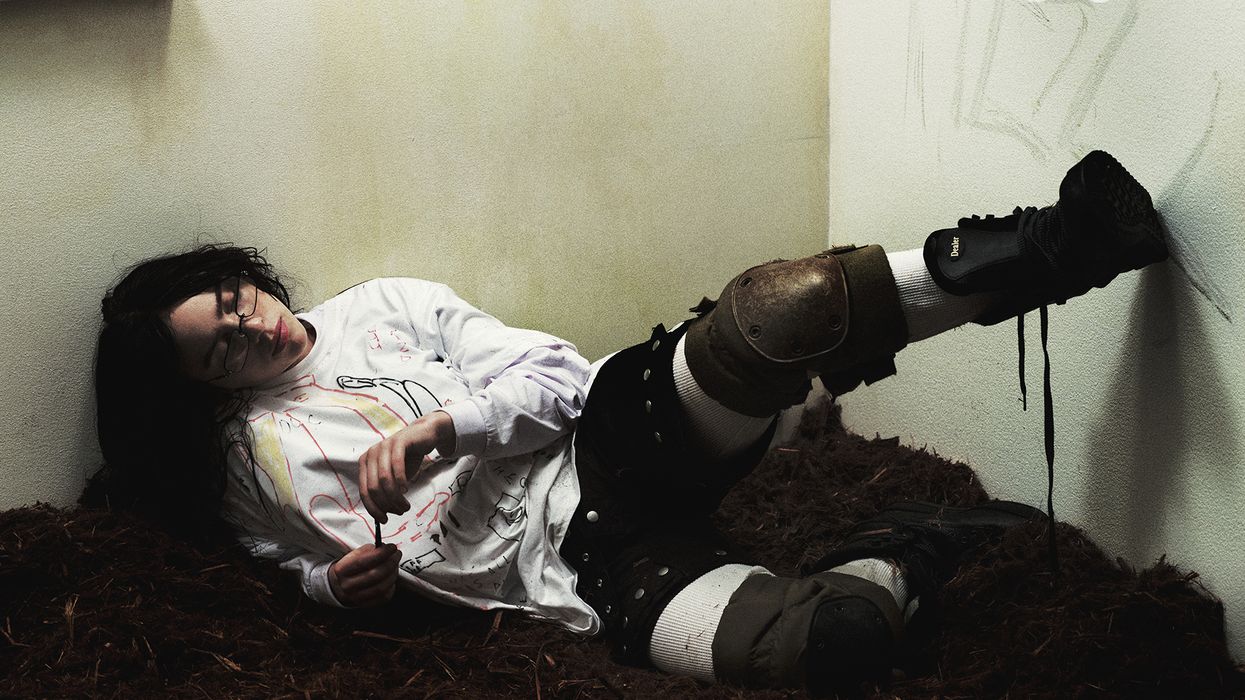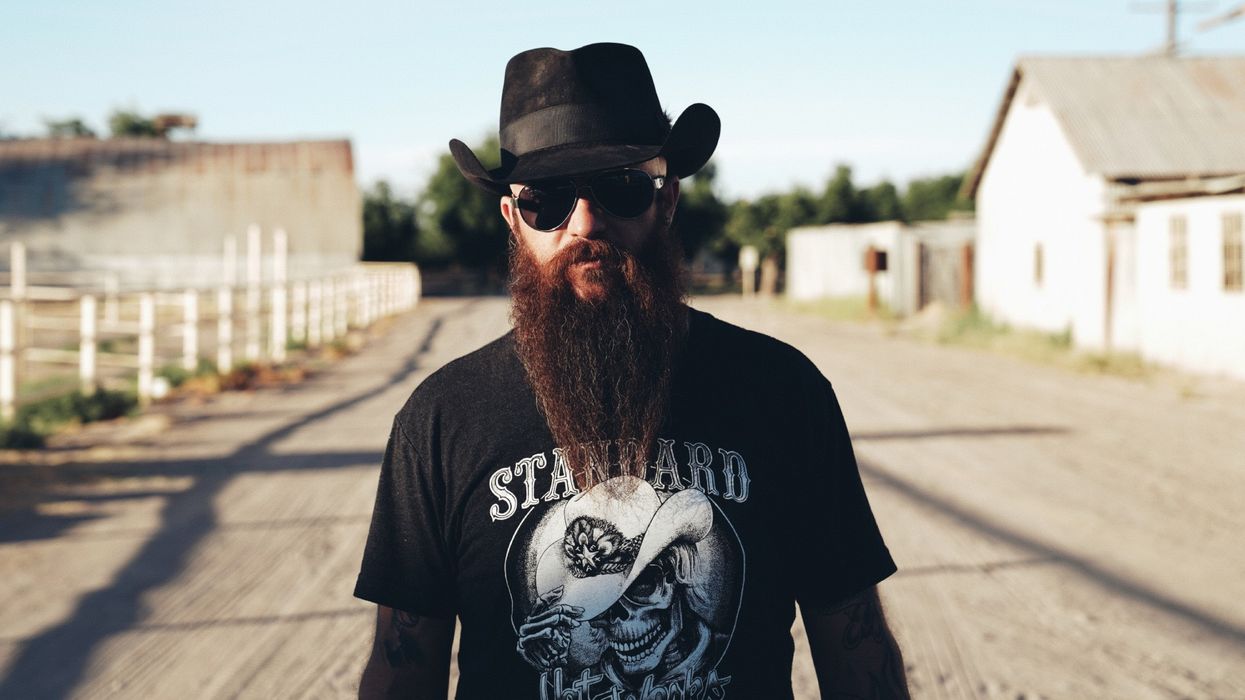This post contains spoilers for this week’s episode of True Detective: Night Country, which is now streaming on Max.
Early in our fourth chapter, Danvers comes upon Navarro’s sister Julia stripping off her clothes in the middle of the street. She flings her clothes behind her, unconcerned for the mess or spectacle she’s making, just trying to get free of the emotions that are always trying to crush her. Evangeline takes this for another episode in Julia’s lifelong struggle with mental health, and finally gets her sibling to check herself into the nearby Lighthouse facility.
Midway through the episode, Julia again disrobes in the frigid outdoors. This time, though, she stops to neatly fold her clothes, in the same manner that the dead Tsalal scientists’ ensembles were found. This time, it is a walk not down a street where someone like Chief Danvers might be there to save Julia, but out onto the cold, dark, fragile ice. And this time, her sister believes, it wasn’t Julia’s psyche pulling her toward her doom, but the same darkness that Evangeline believes claimed their mother, and will soon claim her.
The first striptease is a visual mess with a seemingly tidy explanation, while the second looks orderly, but is much messier to consider. By the conclusion of the hour, the investigation itself is feeling more tangled than ever. And Navarro, who throws herself more deeply into the case as a way to avoid dealing with the loss of Julia, is instead beset by what appears to be her sister’s spirit, and ends the episode in a daze, her ears bleeding, perhaps hearing the same call that she believes came for the rest of her family.
So which version of Navarro is right: the one who wanted her sister under a doctor’s care, or the one convinced that the danger is beyond our understanding or ability to fight?
That final sequence takes place in and around an abandoned dredge — a once-awesome piece of machinery that’s now a rusting, forgotten hulk in the middle of the ice — where our heroines have gone to look for Otis Heiss, the mystery man who seems to tie the two cases together. He mapped out the underground ice caves where Annie K apparently died, and he once suffered similar injuries that plagued Anders Lund and the other Tsalal scientists. When Danvers finds him, he is standing in a corner, almost like a figure from The Blair Witch Project, so on edge that even the sound of his own name makes him cringe in terror. He has a drug kit with him, and one could ask whether the drugs are the cause of his mania, or the only way he can cope with the same kind of voices that spoke to Navarro from Lund’s mouth in last week’s episode. And when Danvers finds her partner in a trance, staring at an abandoned Christmas tree, Heiss insists that chief murder suspect Raymond Clark is “hiding in the Night Country(*). You’re all in the night country now.”
(*) [Extremely fake Ron Howard voice] Hey, that’s the name of the show!
But what’s impressive about the beginning of the season’s second half is how Night Country manages to tell stories of characters being consumed by darkness without being consumed itself. It’s not that the episode is a laugh riot, by any means. But there’s juuuust enough weird humor in the margins to keep the endless night(*) and bleak storyline from feeling too oppressive to watch. There is, for instance, the sad but whimsical image of Hank Prior waiting at the air strip, stuffed bunny in hand, for his non-existent Russian mail order bride to get off the plane and give his pathetic life meaning. And, for that matter, there’s the running gag of both Hank and Ted Connelly(**) watching Elf — which is apparently the Christmas Eve balm for sad and lonely men of a certain age. And there’s even some mild thawing of Navarro’s cold heart when it comes to Qaavik, who continues their light-hearted feud about his SpongeBob toothbrush, and who gets down on bended knee in front of her not to propose a marriage she obviously wouldn’t want, but to help patch up her injured hand.

(*) Seen early in the hour: a No Overnight Parking sign, which seems meaningless from our vantage point, even if people in Ennis have various means of telling a.m. from p.m.
(**) There is absolutely nothing in the story so far that would point to Connelly having anything to do with the murders. At the same time, Christopher Eccleston feels much too recognizable a guest star for what to this point has been a pretty minor part.
That injury comes from another instance of Navarro trying to push all her painful emotions outward, so she won’t have to deal with them. She picks a fight with the abusive boyfriend from the season premiere, as much as an excuse to get hurt as it is an excuse to hurt another man who inflicts pain on women. She’s seemingly too damaged and hostile to fit with a beautiful puppy dog of a man like Qaavik, yet he’s drawn to her. Meanwhile, the brief flashes we’ve seen of Danvers with her late son Holden suggests she has the capability to not be the most abrasive and off-putting person on the planet, yet Ted insists she was always terrible with people — it just got worse when her husband and son died. Leah looks at Danvers less as a stepmother than a warden, and flees to Pete and Kayla’s house after getting in trouble for writing “MURDERERS” in graffiti on the mining company’s headquarters. (Kayla Prior has plenty of reason herself to resent Leah’s stepmom, since Danvers keeps calling Pete back into work around the clock.)
Everywhere we look in Ennis, it seems to be a question of whether people are losing their minds — whether in the mental illness way or the angry way — because of who they were to begin with, or because of what this place has made them into. Before her sister’s death, Navarro enjoys a peaceful meal with Rose (in a scene where Fiona Shaw sports a killer red dress). The cop asks her host how she came to be in Alaska. Rose explains she was a professor who one day decided that everything she wrote about had no meaning, and she came up here to get away from the noise. As she notes, Ennis is a lot quieter, “Except for all the fuckin’ dead.”
Did Raymond Clark kill Annie and his colleagues? Could the mystery be wrapped up as tidily as Julia placed her clothes before going onto the ice? Or can a show that, in this episode alone, has Julia see a vision of her mother coming out from under the bed, has Navarro haunted by Julia during the final chase, and has the same scarred polar bear from the premiere now giving Danvers the business, end things so simply? We’ve got two more hours to find out.
















